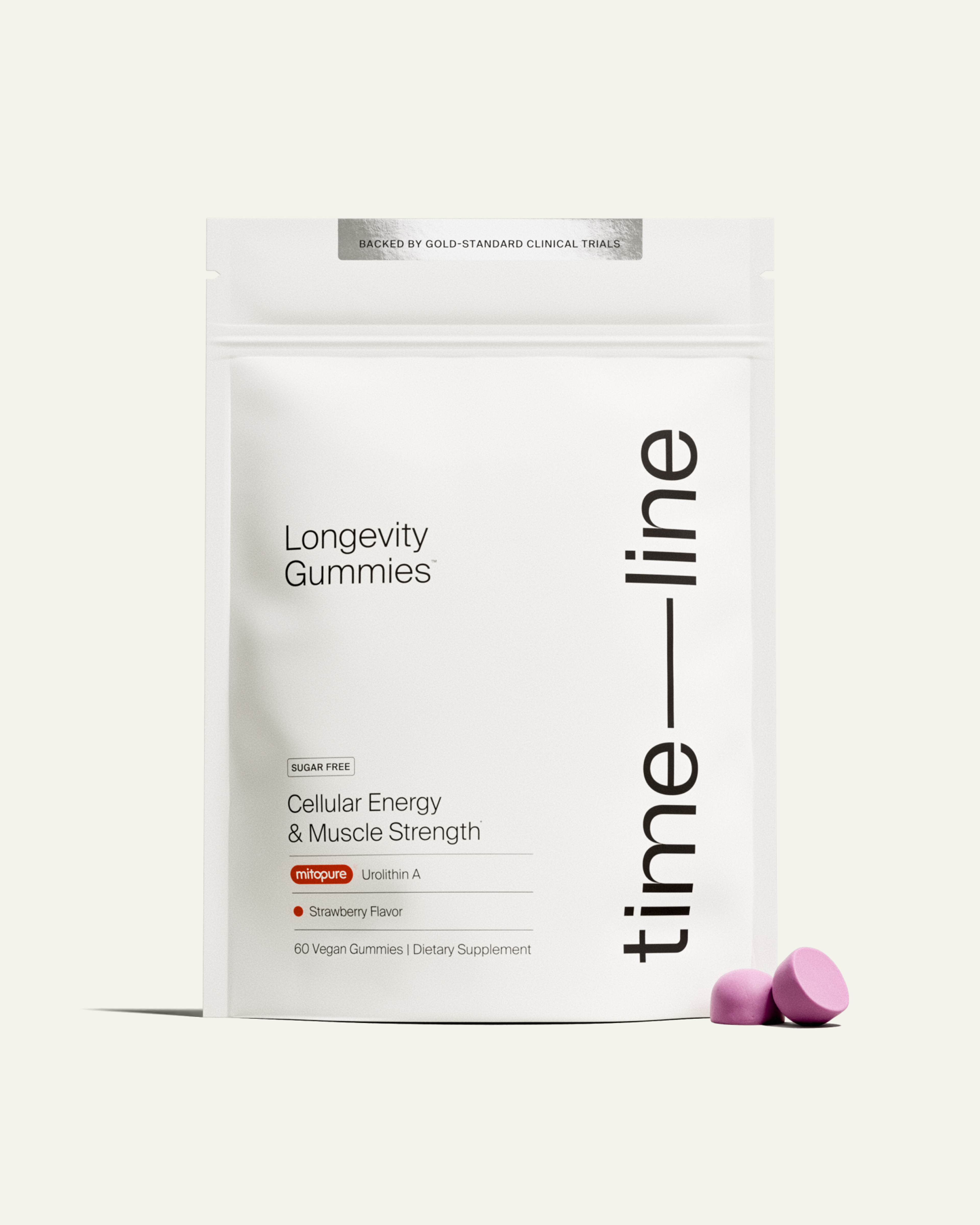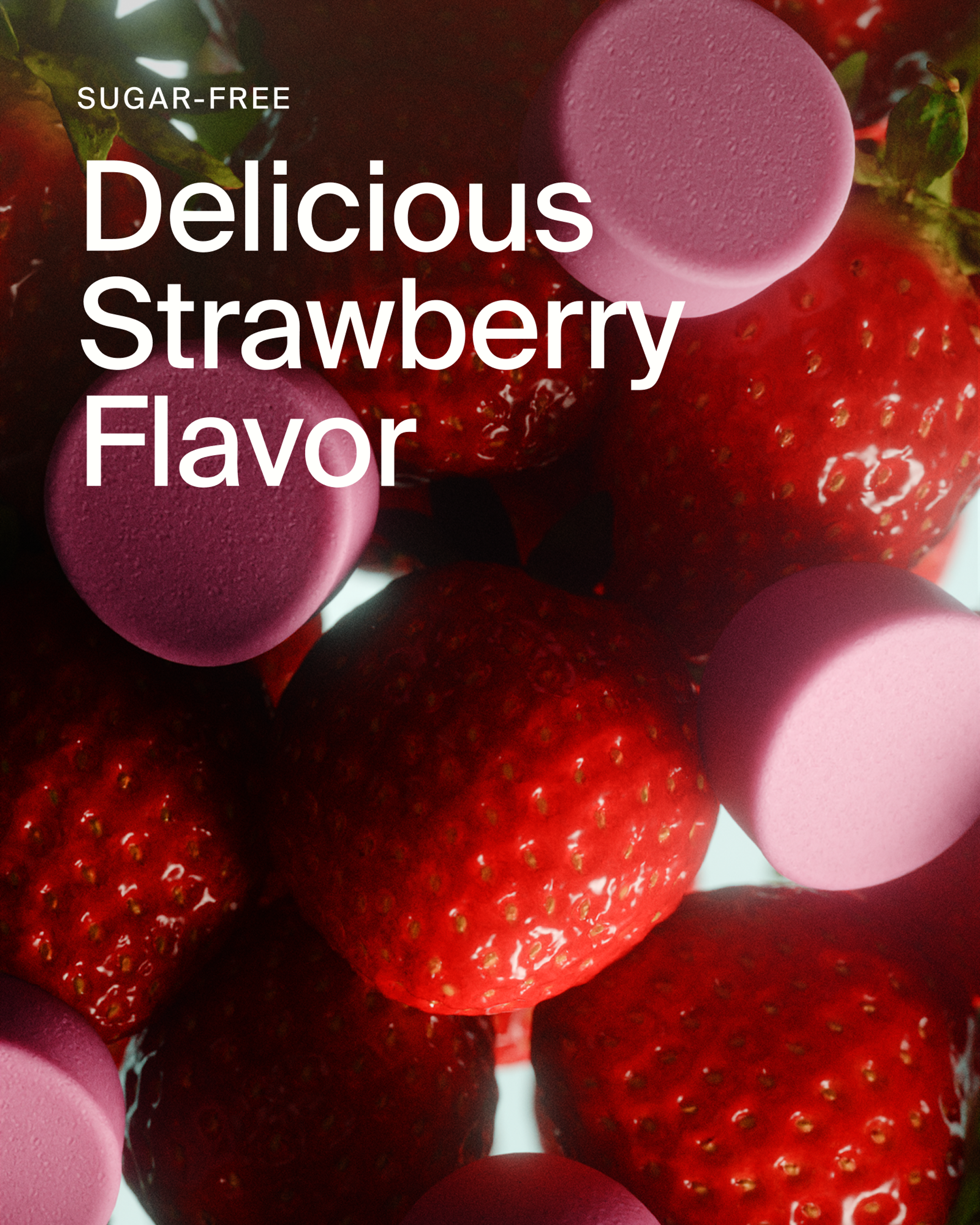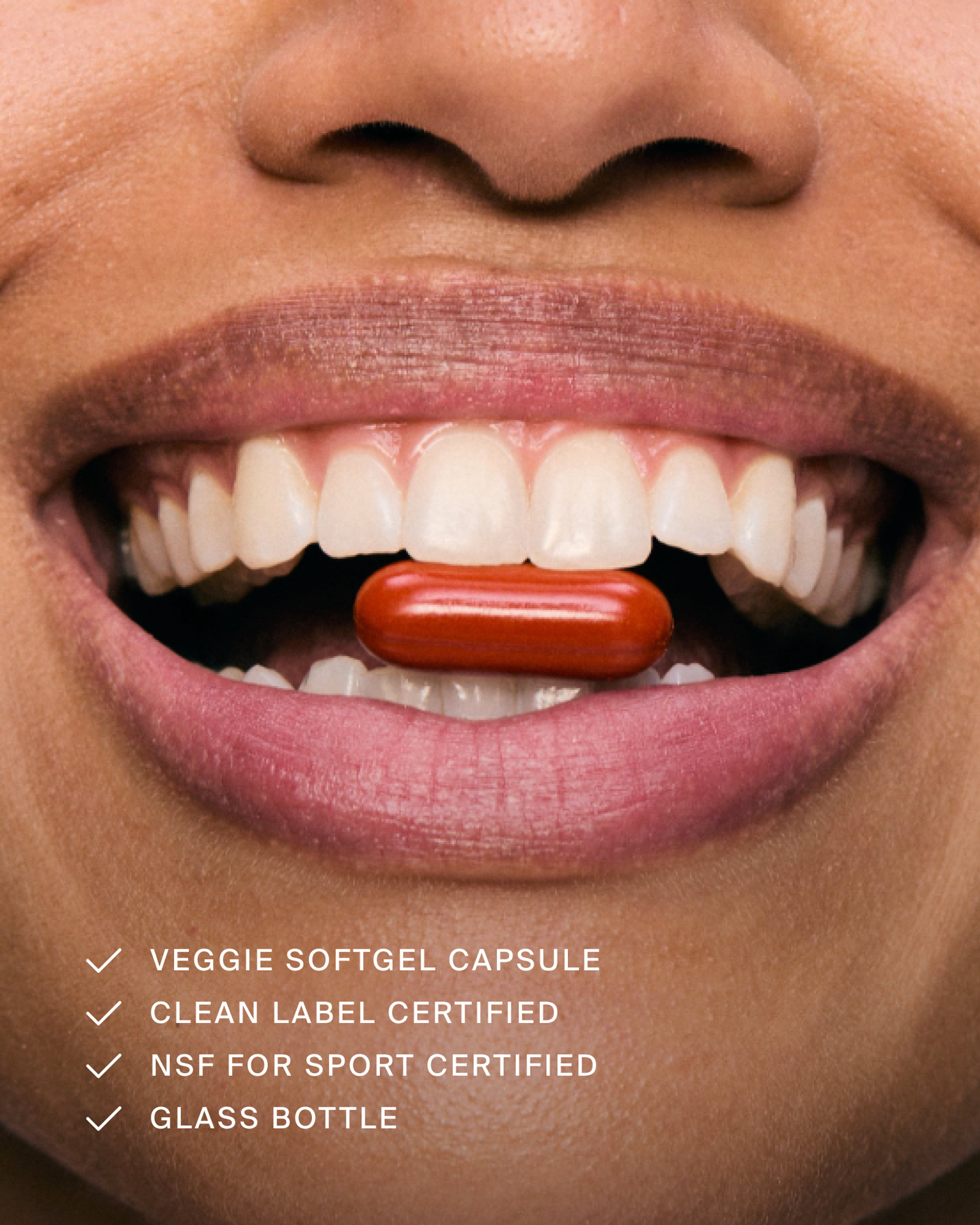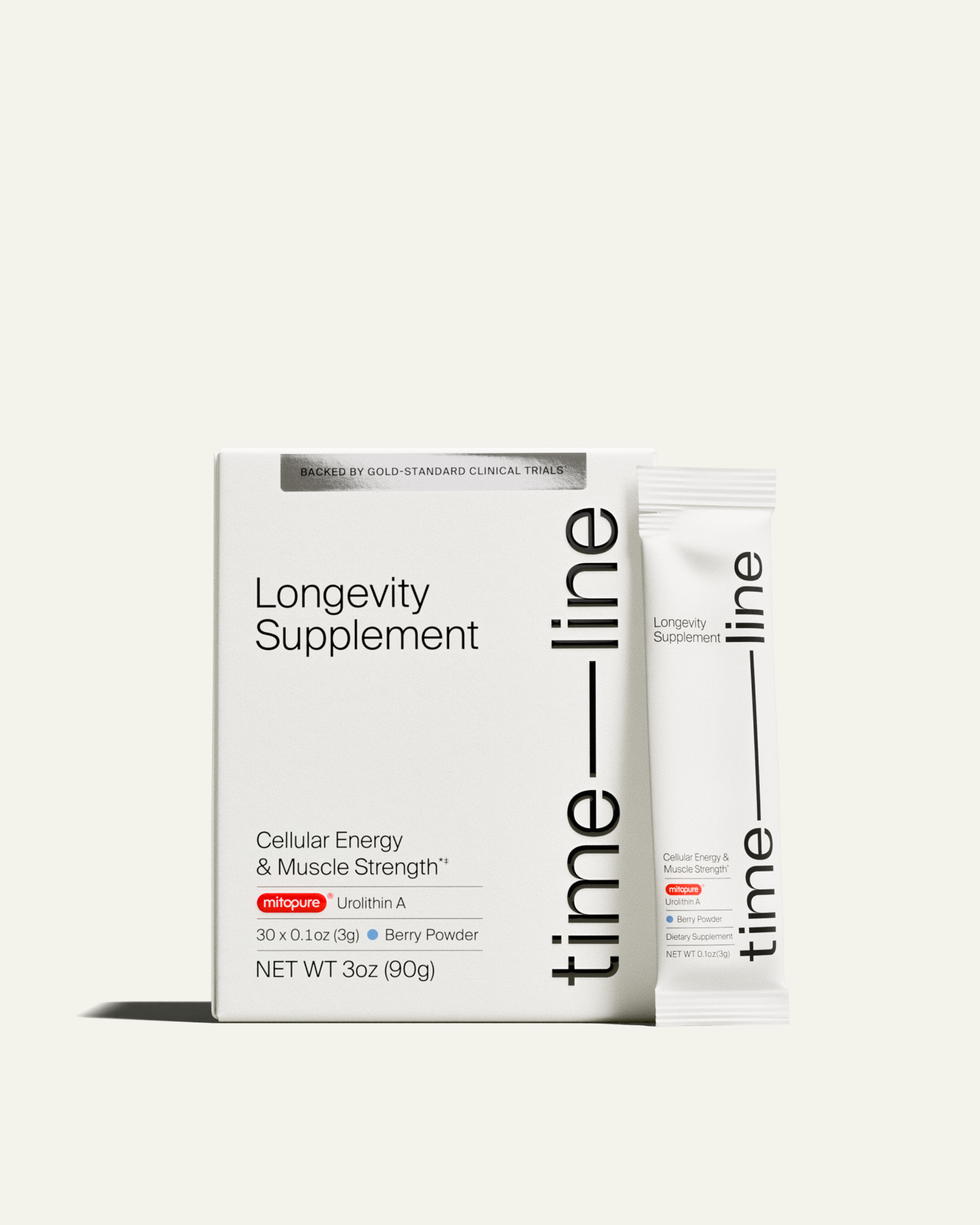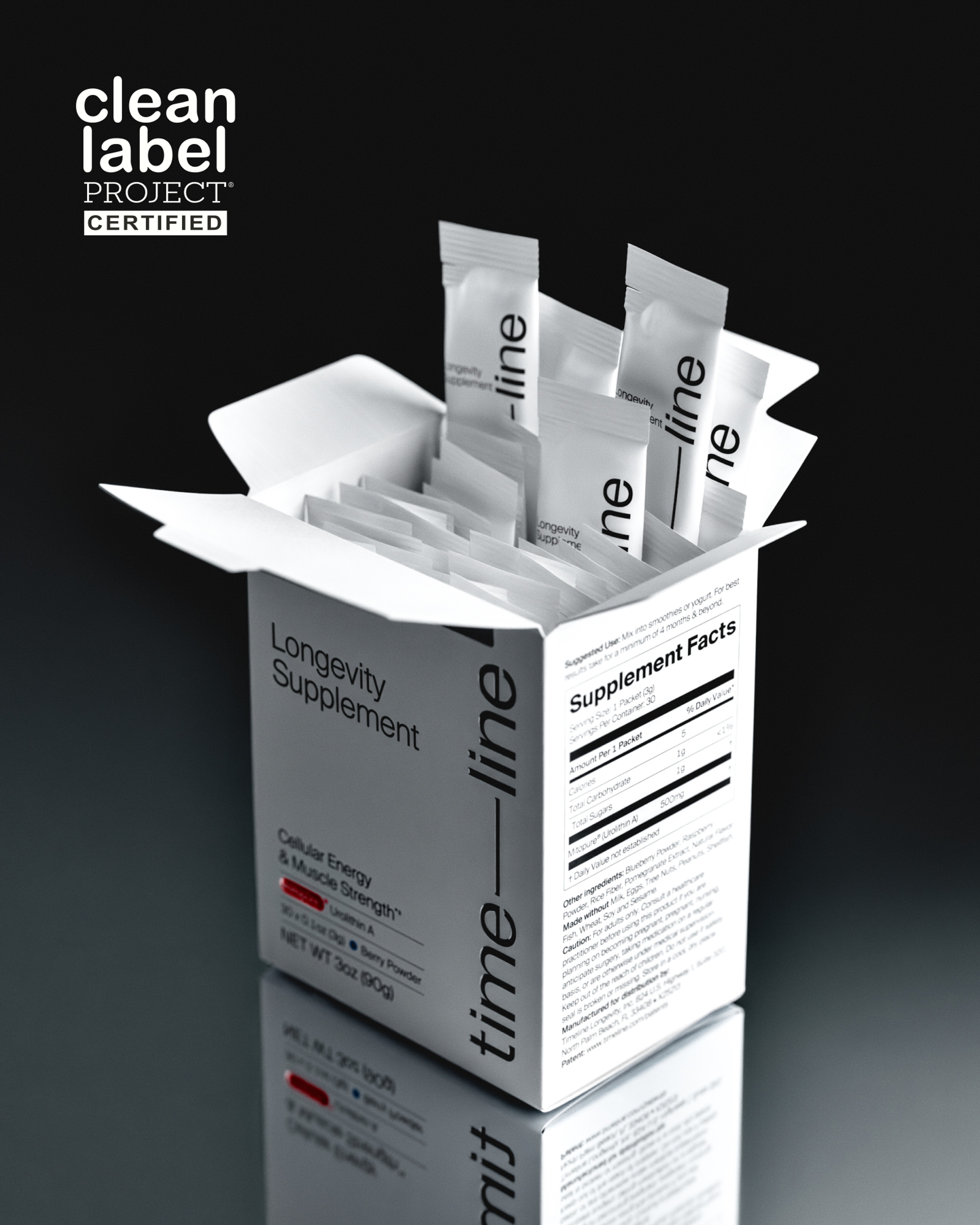How do pomegranate polyphenols promote healthy aging?
Wondering what all the buzz is about pomegranates and health? Read on to understand how polyphenols in pomegranates will keep you aging well.
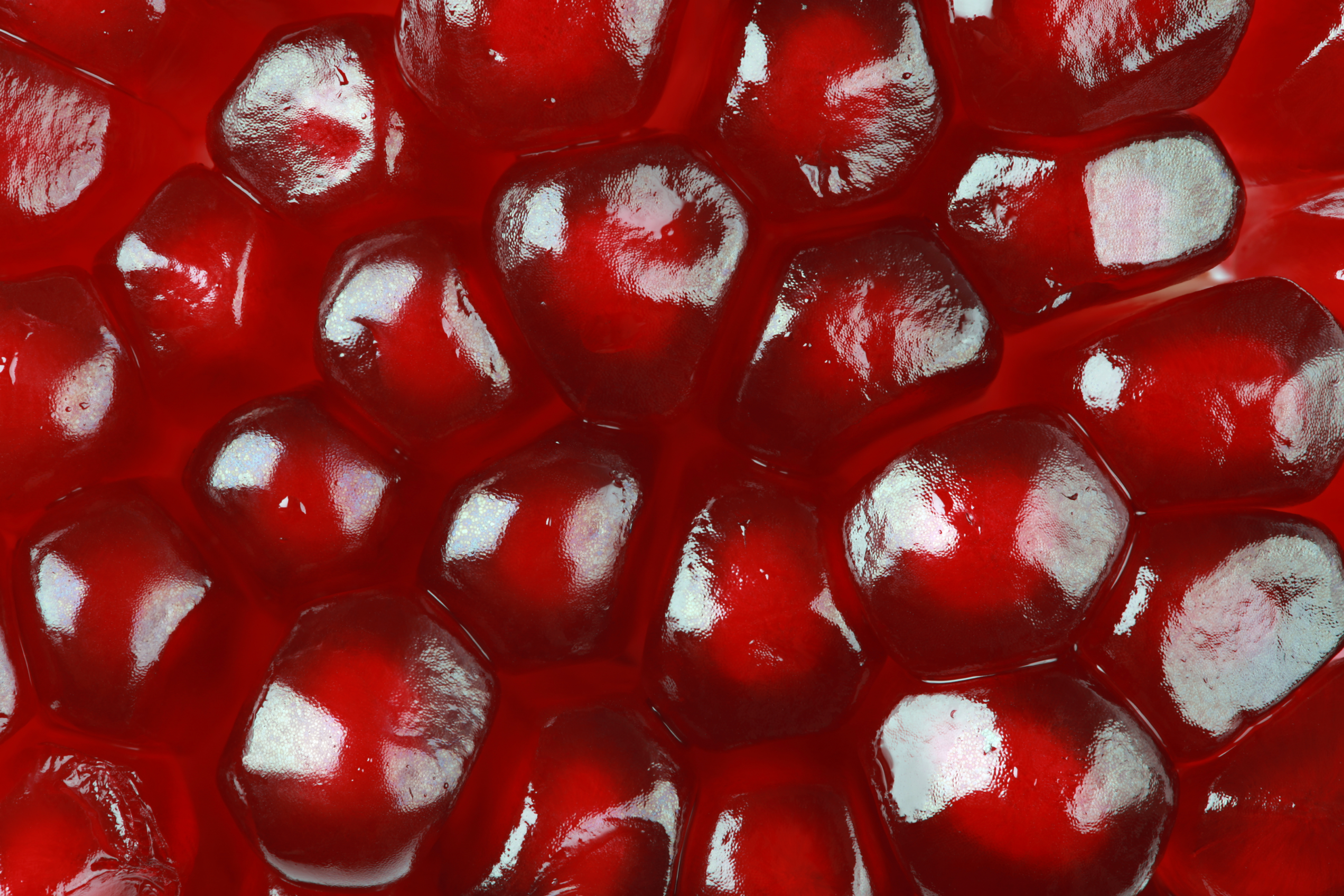
The word “polyphenols” might ring a bell when it comes to superfoods and health. Pomegranates are one such food that has numerous potential health benefits due to the polyphenol content. Pomegranates are rich in several types of polyphenols that have potential antioxidant, anti-inflammatory, and anticarcinogenic effects.[1]
About Polyphenols
Polyphenols are a class of phytochemicals, compounds that are produced by plants that may have desirable effects on health.[2] They are found in a wide variety of plant-source foods such as fruits, vegetables, grains and tea.[3]
Polyphenols in pomegranate
A number of polyphenols are found in pomegranates. The peel is particularly rich in ellagitannins. Others found in pomegranates include anthocyanins and flavonols.[4]
Pomegranate juice is also rich in polyphenols, although the peel of the fruit has been found to have higher total phenolic activity.[5] Those Identified in pomegranate juice include tannins, anthocyanins, ellagic acid derivatives.[6]
In terms of the content of polyphenols in pomegranate juice, some research has shown that the phenolic content differs according to the type of pomegranate. A study done with different types of pomegranate grown in Florida showed that phenolic content in the pomegranate fruit juice ranged from 365.71 to 1167.40 mg/L.[7] Other research has shown that activity was higher in commercial juices than in the experimental ones obtained in the laboratory by hand, which may be due to the pomegranate rind tannins in commercial juice.[8]
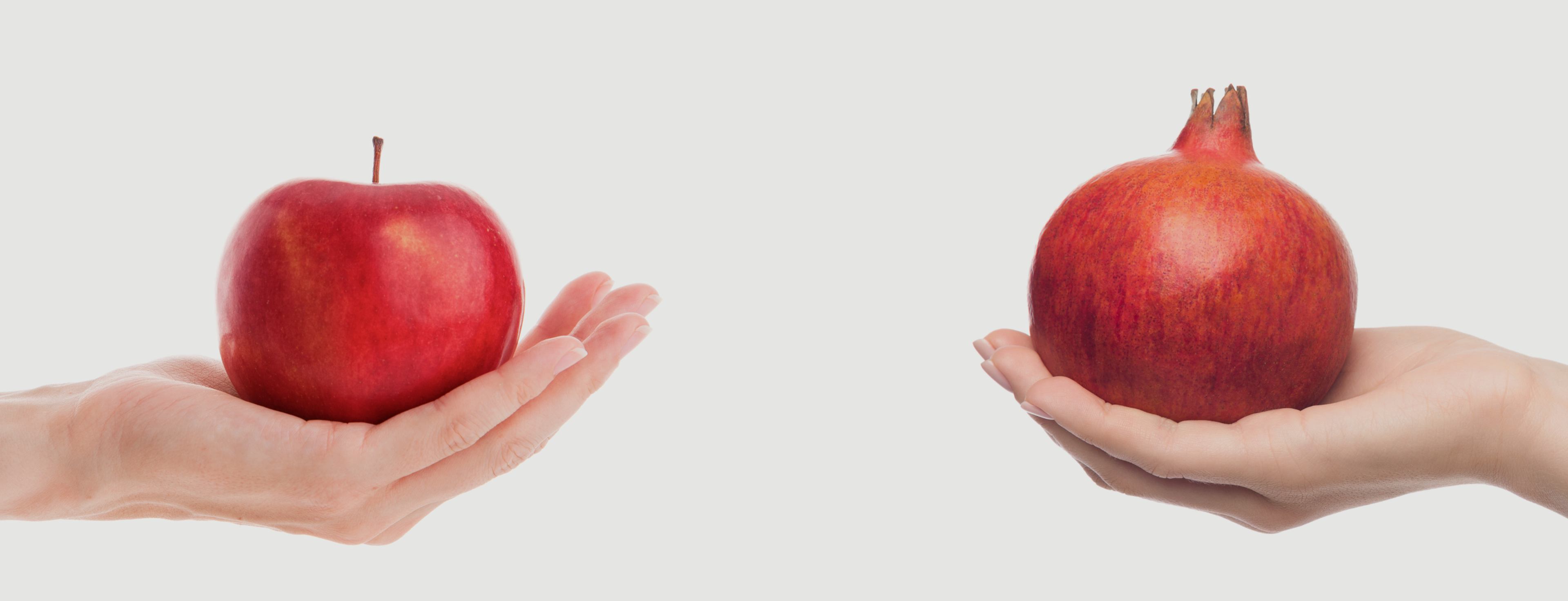
Polyphenols in apples vs pomegranate
Do you ever wonder which fruit you should select for the most health benefits? Let’s consider apples and pomegranates and the compounds they contain that may protect health.
Apples are a source of polyphenols. Flavonols are the major class found in apples and make up most of the phenolic compounds found in apples. Other polyphenols include hydroxycinnamates, dihydrochalcones, and anthocyanins.[9]
In terms of considering which is more beneficial when it comes to apples or pomegranates, it is important to consider the desirable qualities of both. The phenolic compounds in apples may have antidiabetic, cardioprotective, anticancer, and anti-inflammatory effects and provide protection against various chronic diseases.[10] Apples also contain ascorbic acid, which functions as an antioxidant.[11]
Pomegranates also have numerous potential beneficial health effects due to the polyphenol content. Like apples, they also have potential antioxidant, anti-inflammatory, and anticarcinogenic effects and may help prevent or treat various disease risk factors, such as high blood pressure, high cholesterol, oxidative stress, hyperglycemia, and inflammatory activities. Pomegranates also have ascorbic acid, as well as small amounts of all amino acids.[12]
The results of a study that identified the 100 foods with the highest content of polyphenols indicate that both apples and pure pomegranate juice are included, with apples having a higher content.[13]
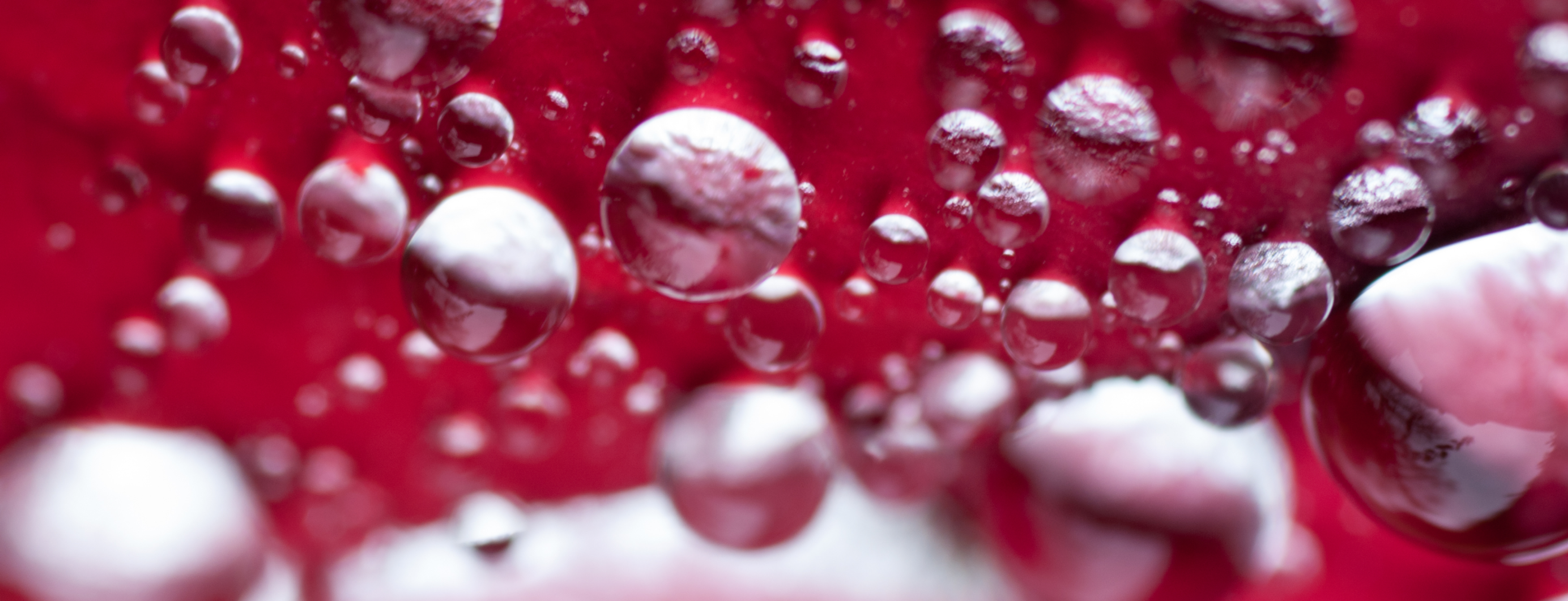
Pomegranate juice benefits
In addition to the polyphenol content, there are also other benefits of pomegranate juice. It is a source of energy in the form of fructose, sucrose, and glucose,[14] although sugar levels in commercially available juice may be high per serving and may be unacceptable to some. Pomegranate juice has also been studied in terms of its potential ability to prevent and treat chronic conditions.
Pomegranate polyphenols have been highlighted specifically as having potential benefits with regards to prostate cancer prevention and treatment. Research has demonstrated that the phytochemicals in pomegranate extract take action in the target organs in prostate cancer. However, as some other studies have not shown any effect of consuming pomegranate extract in cancer patients, more research is still needed in this area.[15]
The compounds in pomegranate juice have also been studied with regards to prevention of other conditions such as rheumatoid arthritis. This is an autoimmune disease present in 0.5-1% of people worldwide. Pomegranate extract has been shown to reduce the onset of arthritis in animal studies, as well as reduce severity of the condition.[16]
The benefits of pomegranates have also been studied with regards to healthy aging. Consumption of the polyphenols in pomegranates also leads to the production of a compound called Urolithin A in the gut. Urolithin A has been shown to slow down the aging process by protecting cells from damage.
Final thoughts
Pomegranates are rich in polyphenols, and these compounds provide many benefits, such as potential protection against chronic disease. One of the important benefits of consuming pomegranates is the production of Urolithin A in the gut, a key compound in promoting healthy aging.
While Urolithin A is important for healthy aging and possible to generate as a result of eating, most people do not eat pomegranates daily. Those who do still cannot make enough of this compound in many cases.
Given this, supplementation is another option. Mitopure is a highly pure Urolithin A supplement and may help people obtain enough of this anti-aging compound. This product delivers 6 times the amount of Urolithin A than the diet alone and shows promise in terms of promoting longevity and health.
Authors

Written by
Editorial Staff
References
- ↑
Zarfeshany A, Asgary S, Javanmard SH. Potent health effects of pomegranate. Advanced biomedical research. 2014;3.
- ↑
Prakash B, editor. Functional and Preservative Properties of Phytochemicals. Academic Press; 2020 Feb 15.
- ↑
Dillard CJ, German JB. Phytochemicals: nutraceuticals and human health. Journal of the Science of Food and Agriculture. 2000 Sep 15;80(12):1744-56.
- ↑
Faria A, Calhau C. The bioactivity of pomegranate: impact on health and disease. Critical reviews in food science and nutrition. 2011 Aug 1;51(7):626-34.
- ↑
Shahkoomahally S, Khadivi A, Brecht JK, Sarkhosh A. Chemical and physical attributes of fruit juice and peel of pomegranate genotypes grown in Florida, USA. Food Chemistry. 2021 Apr 16;342:128302.
- ↑
Gil MI, Tomás-Barberán FA, Hess-Pierce B, Holcroft DM, Kader AA. Antioxidant activity of pomegranate juice and its relationship with phenolic composition and processing. Journal of Agricultural and Food chemistry. 2000 Oct 16;48(10):4581-9.
- ↑
Shahkoomahally S, Khadivi A, Brecht JK, Sarkhosh A. Chemical and physical attributes of fruit juice and peel of pomegranate genotypes grown in Florida, USA. Food Chemistry. 2021 Apr 16;342:128302.
- ↑
Gil MI, Tomás-Barberán FA, Hess-Pierce B, Holcroft DM, Kader AA. Antioxidant activity of pomegranate juice and its relationship with phenolic composition and processing. Journal of Agricultural and Food chemistry. 2000 Oct 16;48(10):4581-9.
- ↑
Vrhovsek U, Rigo A, Tonon D, Mattivi F. Quantitation of polyphenols in different apple varieties. Journal of agricultural and food chemistry. 2004 Oct 20;52(21):6532-8.
- ↑
Rana S, Bhushan S. Apple phenolics as nutraceuticals: assessment, analysis and application. Journal of food science and technology. 2016 Apr;53(4):1727-38.
- ↑
Vrhovsek U, Rigo A, Tonon D, Mattivi F. Quantitation of polyphenols in different apple varieties. Journal of agricultural and food chemistry. 2004 Oct 20;52(21):6532-8.
- ↑
Zarfeshany A, Asgary S, Javanmard SH. Potent health effects of pomegranate. Advanced biomedical research. 2014;3.
- ↑
Pérez-Jiménez J, Neveu V, Vos F, Scalbert A. Identification of the 100 richest dietary sources of polyphenols: an application of the Phenol-Explorer database. European journal of clinical nutrition. 2010 Nov;64(3):S112-20.
- ↑
Zarfeshany A, Asgary S, Javanmard SH. Potent health effects of pomegranate. Advanced biomedical research. 2014;3.
- ↑
Wong TL, Strandberg KR, Croley CR, Fraser SE, Venkata KC, Fimognari C, Sethi G, Bishayee A. Pomegranate bioactive constituents target multiple oncogenic and oncosuppressive signaling for cancer prevention and intervention. InSeminars in Cancer Biology 2021 Aug 1 (Vol. 73, pp. 265-293). Academic Press.
- ↑
Zarfeshany A, Asgary S, Javanmard SH. Potent health effects of pomegranate. Advanced biomedical research. 2014;3.
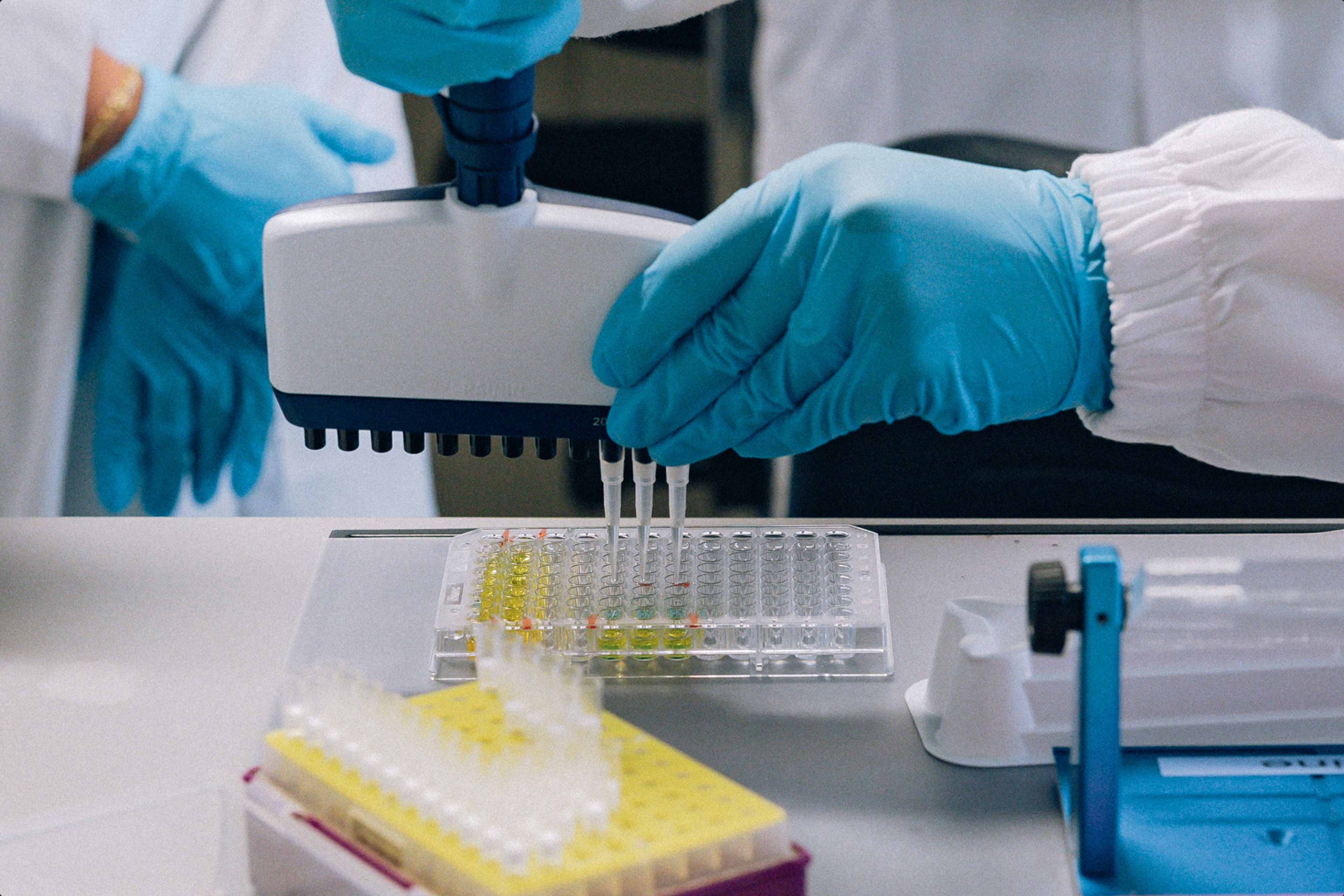
·
Nutrition·
Studies·
